24, July 2023
Douala building collapse death toll could rise as 16 confirmed killed 0
At least 16 people have been killed and nearly three dozen injured after a four-storey building collapsed onto a smaller one in Cameroon’s largest city, according to authorities.
“The casualty figures may be higher”, said Samuel Dieudonne Ivaha Diboua, governor of Cameroon’s Littoral region, where the city Douala is located.
The commercial centre is 210 kilometres west of the capital, Yaounde.
The governor said that “rescue workers, assisted by Cameroon government troops, are still digging the wreckage to see if more bodies can be recovered.”
The military’s fire brigade has been ordered to join the country’s Red Cross and other rescue services in searching for survivors.
Residents living in the Ndogbon neighbourhood where the incident took place said they were in shock.
“We heard people screaming … and struggled to help some out of the wreckage, but could not do it with our spades and hoes,” Gaspard Ndoppo, who lives near the collapsed buildings, said.
The four-storey building caved in around midnight local time and the cause remains unclear, but locals said it looked to have deteriorated with exposed and worn out rods.
Building collapses happen often in Douala, sometimes due to natural disasters such as landslides and other times because of poor construction, locals say.
Douala’s city council is currently demolishing houses in high-risk zones susceptible to floods or landslides but the building that collapsed was not marked for demolition.
Source: AP/Reuters
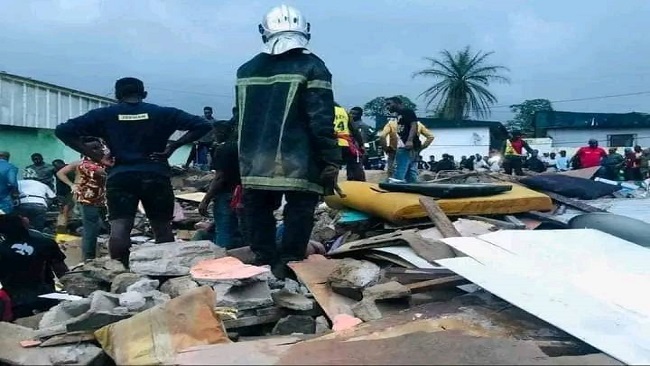
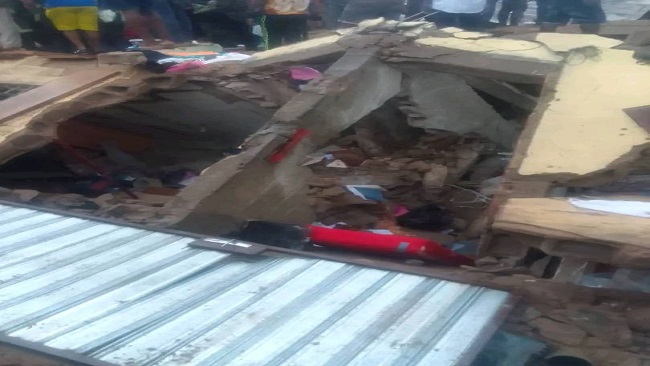
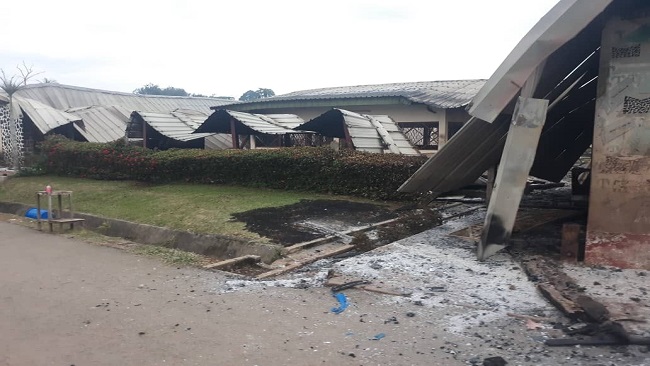

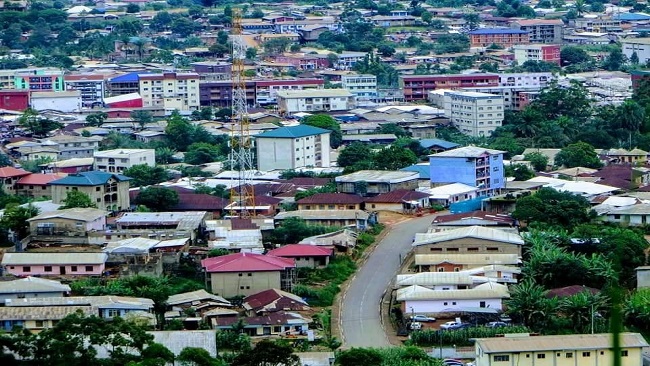
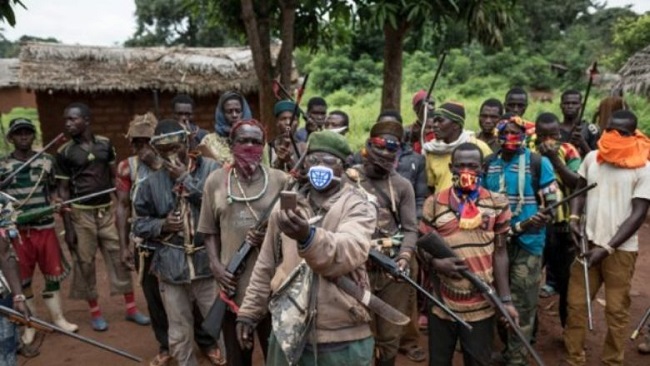

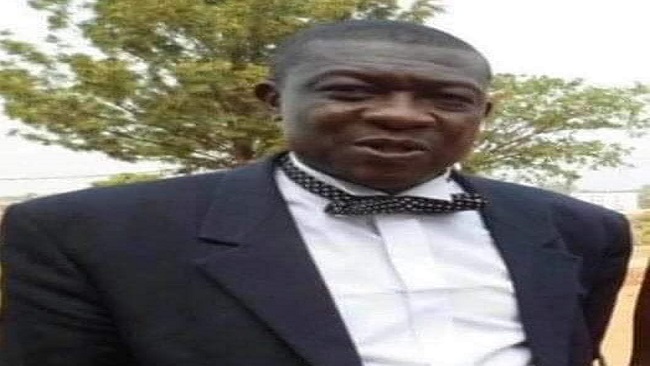


















25, July 2023
UK: Prof. Julius Oben’s contribution to Ayuktayak development legendary! 0
Manyus and members of several Cameroonian communities in Great Britain were treated to a cheerful and vibrant gala in Birmingham, UK on Saturday, July 22 2023, intended to raise funds for the ongoing Besongabang water project. Besongabang is one of the largest villages in Manyu Division, Cameroon, with a population of over 2,552, according to the latest population survey. The village is blessed with a very successful diaspora in Europe and North America, but like many places in the country, water and other essentials for life are not readily available. So, for over twelve years, the Besongabang diaspora has engaged in a worthy cause of soliciting funds to construct boreholes to supply drinkable water to their village. And last weekend’s fund-raising event provided a rare opportunity for friends of Besongabang and Besongabang citizens in the UK to put their names in the history books of the village.
The Birmingham city occasion was organized by the Besongabang General Association and animated by the renowned DJ Eko. Guests were treated to a live display of the Obasinjom dance with traditional drums and songs to match. The Obasinjom display, the first of its kind in the UK, was coordinated by two Besongabang sons, Chief Agbortarh Takor and Nfor Mgbe Nelson Agbor.
A distinguished son from the Ayuktayak clan, Prof Julius Oben, the Director of the Laboratory of Nutrition and Nutritional Biochemistry at the University of Yaoundé 1, was the guest of honour. The award-winning academic and philanthropist flew into the UK from Cameroon with his wife and son at short notice just for the event. He graced the evening with a soul-searching speech and donated £700 in cash to the cause.
The laudable gesture from Prof Julius Oben has sent shudders through the Manyu diaspora because other Besongabang notables in the UK were conspicuously absent from the event.
Among the dozens of donors were Ms Patience Ekule and Mrs Naomi Enowpka-Kum who also supported the water project with £500 and £700, respectively. Besongabang UK, Vice President Ms Marie Eyong, who hosted more than twenty-five donors at her residence after the historic gala nite was visibly delighted with the result. Cameroon Concord News London Bureau Chief Seseskou Asu Isong had a seat on the high table.
By Esther Ashu